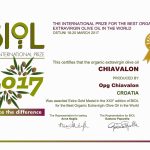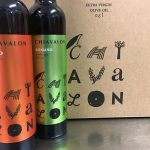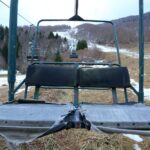“E, i?”
That’s how the day starts at about 4 p.m. Or better put, how the day starts to end. With a “Yeah, and?”
“I picked about maybe about 70 kilos. And it’s hot,” I replied, throwing myself onto a barstool and exhaling. “I shouldn’t, for the love of God, be wearing short sleeves.”
Not in mid-November. Not during the olive harvest.
Scattered around the bar are familiar faces. There’s a cousin… No, not a cousin. Just a friend’s father. Might as well be a cousin.
You’ve got the carpenter who seems to have had a mustache his whole life, and his lanky brother, a mechanic who hasn’t met a day without shaving first. There’s that chainsmoker with the salt-and-pepper hair that swoops back over his bald spot and curls up back behind his ears. He left decades ago but comes back every November for the harvest.
Then there’s the stumpy, bald guy with the lopsided eyeglasses… Well, he’s always here.
These folks, they all speak this village’s variant of “čakavski”. They can tell you which house they were born in — it inevitably isn’t the same one they were raised in. They all laugh at each other’s faults, yet burst into rage-filled arguments at the slightest provocation.
They all hail from Mali Iž.
No zimmer frei seeking a liqeur not on the shelf. No members of the Canadian or Aussie diaspora in Ray Ban sunglasses puncuating their conversations with English exclamations (mostly “faken”).
And so it goes, every year when the olives switch from shiny green orbs to blotchy purple droops, a vast collective of Mali Iž’s local diaspora descend onto this island, coming “home” if only for a few weeks. Folks who left long ago for brighter prospects and bountiful opportunities. For bigger dreams and better odds.
They left, frankly, because they didn’t want to spend a lifetime doing this; depending on the whims of a tree which produces fruit whenever the hell it feels like.
The irony isn’t lost on the mass of Malo Ižani flooding the island to pick olives. They know they’ve come back to do the thing they tried to escape.
In the process, they accidentally show what the island could have been if they stayed. Vibrant, alive, unique. To borrow a phrase: Iž, Full of life.
Because on Iž and a few other Dalmatian islands like it, olives weren’t a happy hobby, or one of a myriad of economic sectors. It wasn’t a fad.
Olives were a means of survival.
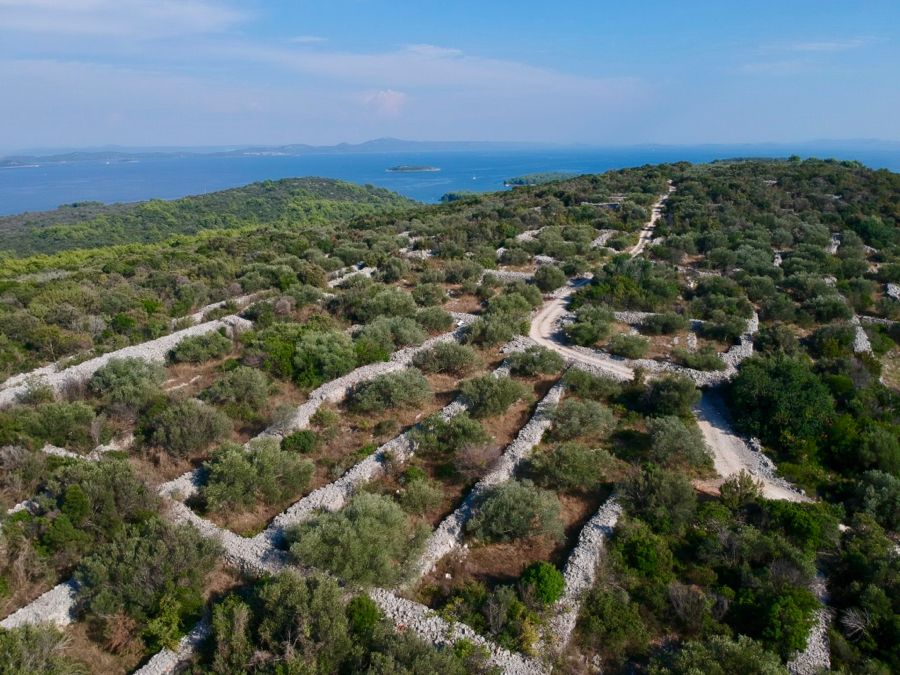
When the first settlers arrived on this island about 1,000 years ago, they were greeted by a heap of limestone and dolomite ridges, covered in aggressive weeds which survived despite lackluster soil and arid conditions.
It was not screaming out for an agricultural boom. Yet the island’s owners — Zadar’s aristocracy and the Church — wanted some return on investment from their island holdings, while safely tucked away in their mainland villas. Their needs were met by some willing and needy economic dregs seeking something to keep them alive.
Those early settlers — my ancestors — broke open the hard rocky shell of this island quite literally by hand, until they found soil worth propagating. They tilled, dug, fertilized and planted olives.
The same olives I’ve spent the better part of five years rejuvenating. The same olives which, yesterday, gave me this…
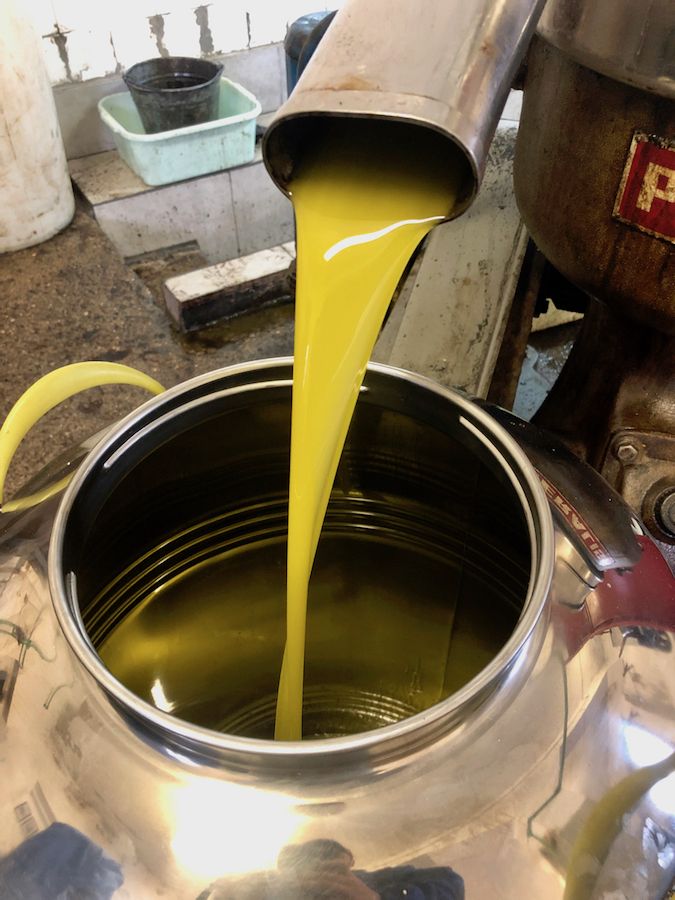
Hazards And Hope At The Mill
“I tried Viagra. Doesn’t work for me.”
This is how my day at the mill begins — or starts to begin. Our town “mechanic” is laying bare the trials and tribulations of life as a 30-something transplant who moved to this island from Zagreb. He’s black and brown with the grease of mashed up olives, his hands and face shiny like a newly-minted coin.
“Yeah, I already heard this one” I tell him, yet he continues, “Viagra only makes me hungry!”
Inside the mill, the grindstones are whirring over freshly-dumped olives, which pop and smack as they’re crushed. The soft, lilting smell of freshly-pressed olives stands stout in the air, as immovable as the hydraulic press which produces it.
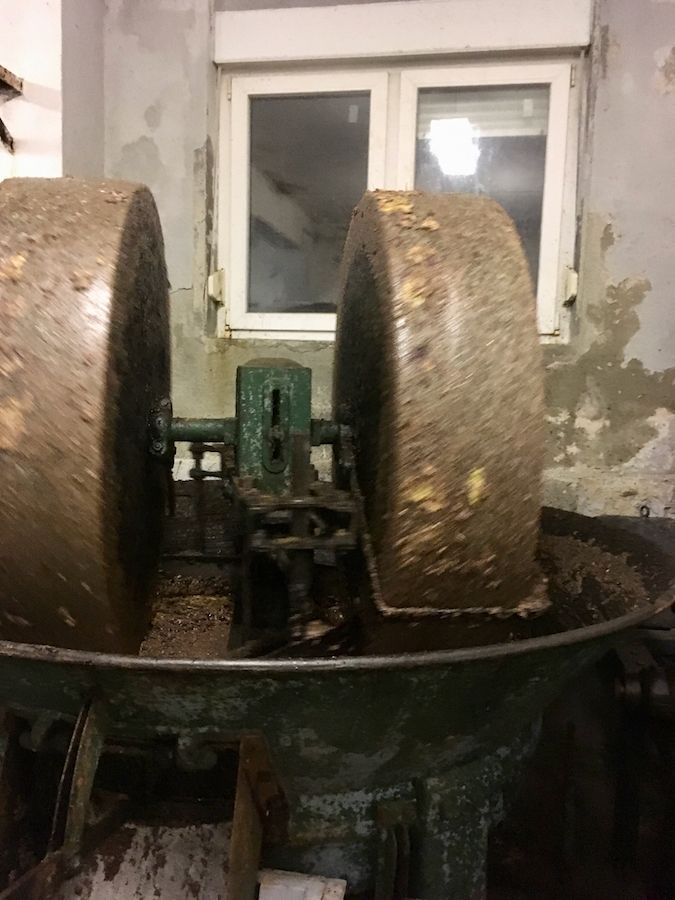
Then there’s the “separator,” a barrel-shaped device which whirls the freshly-pressed oil to remove any last bits of water and solids, then spits it out of a tongue-like tube.
It represents the terminus of an annual olive journey that starts with fertilizer and ends with a gas-powered trimmer. Rituals of all sorts are peppered along the way: grilling food while burning pruned branches; the backaches felt after digging fertilizer into the soil with a crooked spade known locally as a motika; age-old arguments over pruning techniques and modern vs. traditional agronomy.
Then, on your day at the mill, it’s customary to bring the workers some form of sustenance, booze and deserts.
And perhaps entertain the odd erectile function story out of sheer good will.
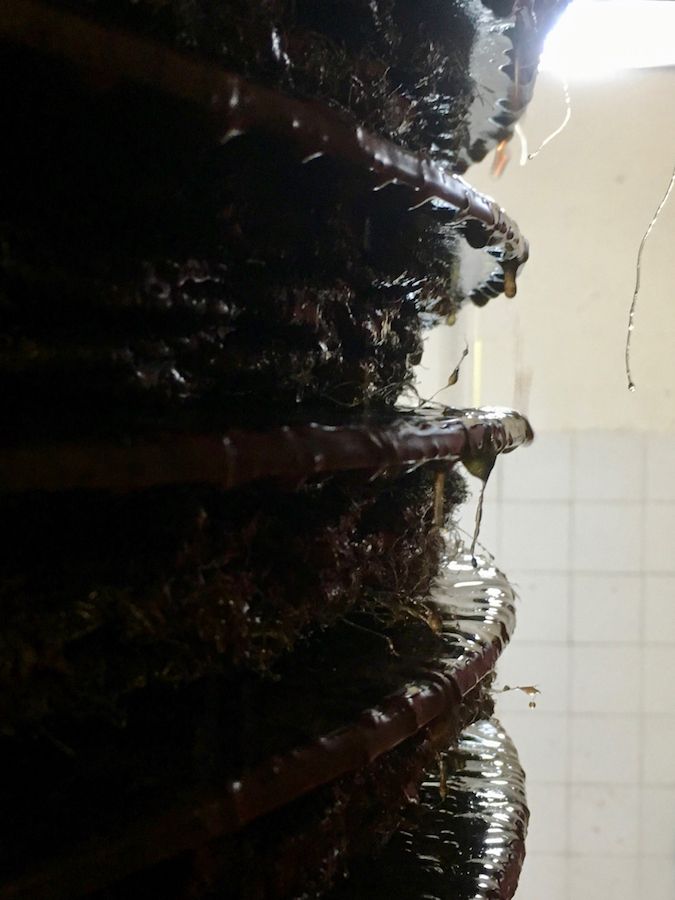
Find someone old enough on Iž and they’ll tell of a life completely consumed by the soil and sea. Grapes, figs, pomegranates, plums, and the occasional almond tree, accompanied the usual vegetable gardens and potato fields. And perhaps in particularly fruitful (read: profitable) years, cured meats.
Yet at the heart of it all was the olive — a source of food, light and heat. It was also, for many, equal to any currency. (It certainly outlasted quite a few.)
Iško ulje could get you cheese from Pag, wine from Zadar and a handyman to repair something around the house, all in a shadowy barter economy that still exists if you make the right offer.
Now though, Iž’s oil is mostly the domain of hobbyists and romantic nostalgics looking for a brief dose of their past lives.
More than any other summer vacation, or one-off family gathering, olive season brings out the final vestiges of what was once a thriving micro-culture. One has to wonder: why can’t olives bring it back again permanently?
To read more about olive picking in Croatia, click here.


